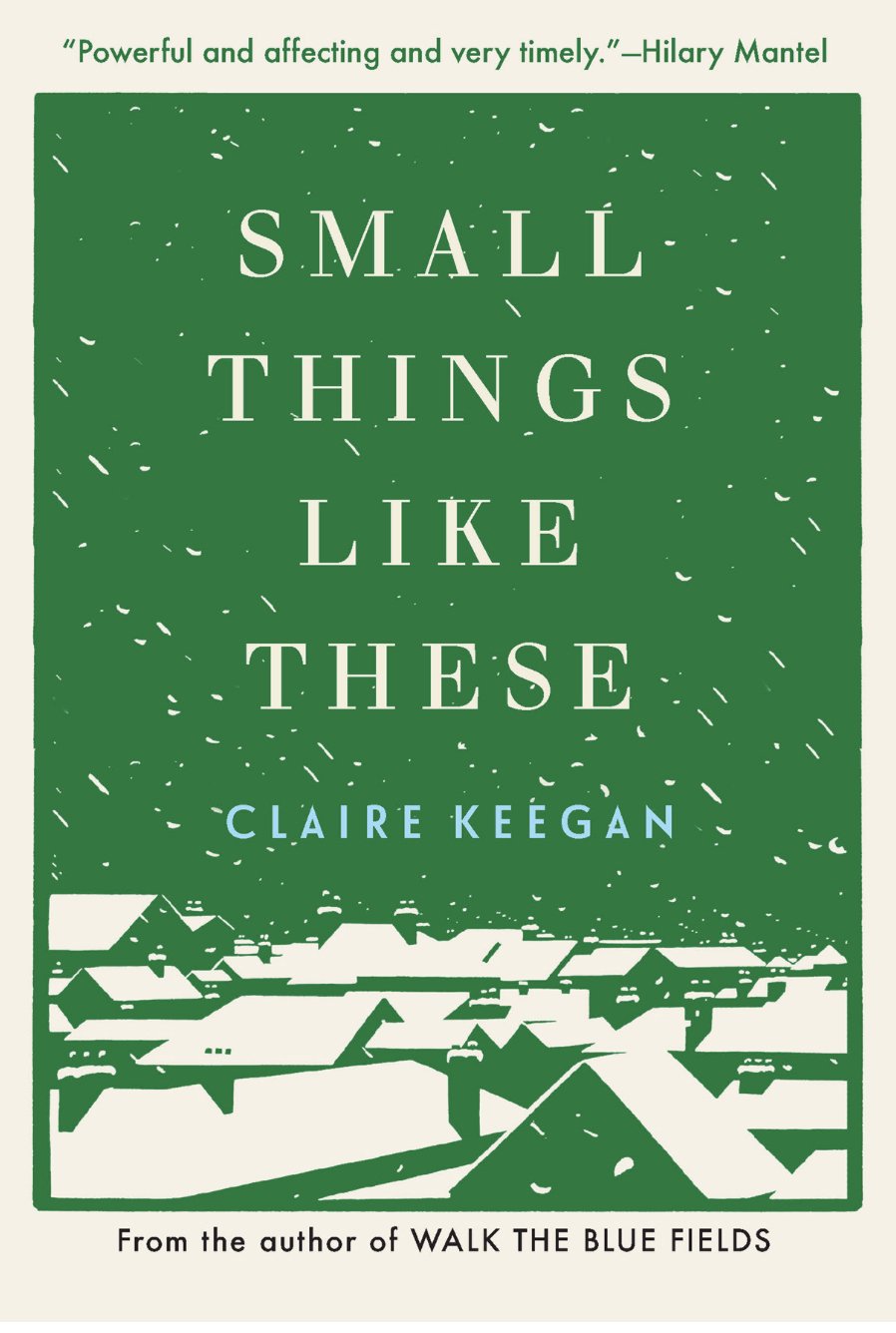Narrative Momentum in Small Things Like These by Claire Keegan
Thank you to Sarah Ellis for recommending Small Things Like These by Claire Keegan. It’s a short novella set in Ireland in the days of the Magdalene laundries, but that is not what it is about. Rather, it is the story of a man who deals in coal, a man with an ordinary life, a life that has turned out well, a man with no more than ordinary worries—but one who has nonetheless carried a hole in his heart since his childhood. See Keegan’s interview with another Claire, Claire Armitstead, in The Guardian, in which she expresses a refusal to condemn any of her characters, no matter how terrible their actions might seem.
The prose in Small Things Like These spins itself out in a kind of fabric at once delicate and strong, unfurling and unstoppable. Much may be extraneous to the main point in this writing—you certainly can’t call it spare—but nothing is wasted. See how this passage wraps up and carries forward an entire roundup of the gossip in town without once shifting its distance from the reader. Not a whiff here of the anxiety writers sometimes feel about that thing sometimes called “immediacy.”
Some said that the training school girls, as they were known, weren’t students of anything but girls of low character who spent their days being reformed, doing penance by washing stains out of the dirty linen, that they worked from dawn til night. The local nurse had told that she’d been called out to treat a fifteen-year-old with varicose veins from standing so long at the washtubs. Others claimed that it was the nuns themselves who worked their fingers to the bone knitting Aran jumpers and threading rosary beads for export, that they had hearts of gold and problems with their eyes and weren’t allowed to speak, only to pray, that some were fed no more than bread and butter for half the day but were allowed a hot dinner in the evenings once their work was done….But people said lots of things—and a good half of what was said could not be believed; never was there any shortage of idle minds or gossip abut town.
The confidence of that voice takes my breath away—so sure, so clear, pulsing forward with an interior energy. And then it twists into this action that has already been plotted into place, just a part of Furlong’s ordinary day, but it will lead to a break with everything he knows to be ordinary:
Furlong didn’t like to believe any of it but he’d gone, one evening, to the convent with a load well before it was due and, finding no sign of anyone at the front, had walked down past the coal house on the gable end and slid the bolt on a heavy door and pushed through to find a pretty orchard whose trees were heavy with fruit: red and yellow apples, pears.
Those words turn the story so fast you hardly realize it’s shifting from possibility into revelation. The setting grabs Furlong as it grabs me, the reader. There are geese involved, and then girls, elemental as apples on trees or geese alarmed by an intruder. Girls, polishing the floor and seen for the first time as more than backdrop. We’re spiraling into the heart of the story. The words carried me along so surely that I was unaware of time passing, of pages turning, and found myself surprised to have reached the end.
Surely there would be more.
I wanted more, because I wanted to stay in the world of those words. At the same time, Furlong had done what he had to do and he had found the hope he needed and even if the rest of his life was about to erupt, which was likely, this story had found its peace. It felt a bit like magic, that shifting of the story’s direction once more, from the likely to the inevitable.
